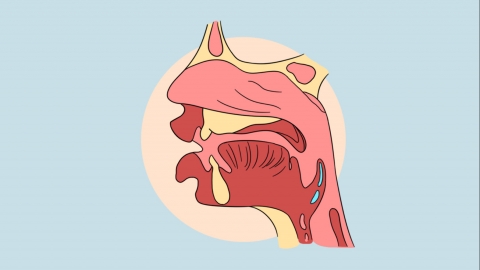How to treat a hoarse throat
Generally speaking, the throat refers to the pharynx and larynx. Hoarseness of the voice may be caused by excessive voice use, dry environmental conditions, vocal cord nodules, acute laryngitis, or vocal cord paralysis. Treatment options, as directed by a physician, include general management, medication, and surgical interventions. A detailed analysis is as follows:

1. Excessive Voice Use
Extended periods of loud talking, singing, shouting, or crying may cause frequent vibration and friction of the vocal cords, leading to mucosal congestion, edema, or even minor injuries. These changes can impair normal vocal cord vibration and result in hoarseness. It is advisable to manage voice usage properly, avoid prolonged continuous speaking, and allow adequate rest intervals to enable recovery of the vocal cords.
2. Dry Environment
When the surrounding air is excessively dry, moisture from the pharyngeal and laryngeal mucosa may evaporate rapidly, causing the vocal cord mucosa to become dry and less elastic. This can affect normal vibration characteristics of the vocal cords and lead to hoarseness. Measures such as using a humidifier to increase indoor humidity and increasing fluid intake can help maintain sufficient hydration.
3. Vocal Cord Nodules
Vocal cord nodules may develop due to improper voice use, which causes frequent and excessive friction and collision of the vocal cords. This leads to localized thickening and hypertrophy in the superficial layer of the vocal cord mucosa, forming nodule-like lesions. These lesions can interfere with normal vocal cord vibration and cause hoarseness, sometimes accompanied by vocal fatigue or mild throat discomfort. Treatment options, under medical guidance, may include medications such as Jinshang Sanjie Pills, dexamethasone sodium phosphate injection, and vitamin A soft capsules.
4. Acute Laryngitis
Acute laryngitis is often caused by viral or bacterial infections. When the throat mucosa is infected, an acute inflammatory response occurs, characterized by significant congestion and edema. The vocal cords may also swell, limiting their vibration and causing hoarseness. Patients may also experience symptoms such as fever and chills. Treatment options, as prescribed by a physician, may include antiviral oral solutions, nebulized acetylcysteine solution, and amoxicillin-clavulanate potassium tablets.
5. Vocal Cord Paralysis
Vocal cord paralysis may result from neck trauma or injury to the recurrent laryngeal nerve during thyroid surgery, which affects the nerves controlling laryngeal muscles. When the recurrent laryngeal nerve or other related nerves are damaged, the muscles of the larynx lose normal neural control, impairing vocal cord movement or coordination. This can prevent proper vocal cord closure or vibration during phonation, leading to hoarseness. Additional symptoms may include coughing while drinking and difficulty swallowing. Treatment depends on the underlying cause—for example, nerve repair surgery may be considered if the paralysis is due to surgical injury. For cases with slow or incomplete nerve recovery, voice therapy may help patients relearn proper vocal techniques.
Maintaining a healthy lifestyle is important. Avoid staying up late and ensure sufficient sleep to support normal physiological functions and immunity. Engage in regular physical exercise to strengthen overall health and improve resistance to adverse factors.






